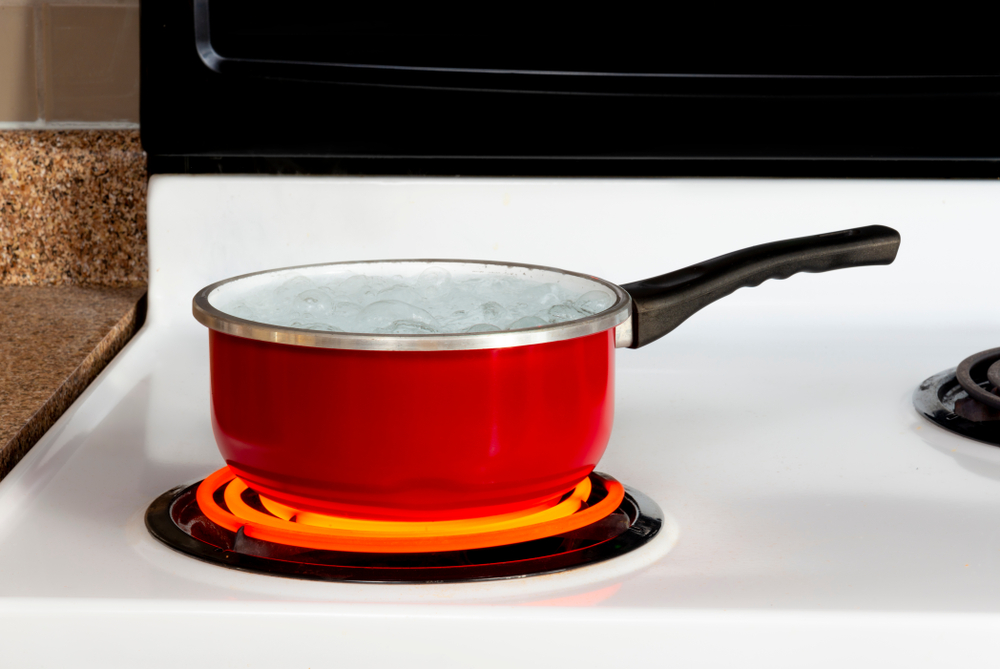What is the Most Energy-Efficient Electric Stove?
When appliances start to reach the end of their life, homeowners might be upgrading these older appliances to energy-efficient options. Some homeowners might be gradually replacing all their outdated and energy-zapping models for newer and more efficient appliances.
Stoves might last several decades. Many models include an oven and serve as a dual unit. When older stoves start to lose their heat, homeowners might be on the hunt for an energy-efficient upgrade. What is the most energy-efficient electric stove? Unfortunately, stoves (and ovens) are not qualified to receive an ENERGY STAR label.
Finding the most energy-efficient range might require homeowners to weigh the advice and stats or specs of different resources and sites. Without verifiable data related to the ENERGY STAR label (and the standards that guide it), there isn’t an easy way to discern the most energy efficient electric stove.

How Could an Electric Stove be Energy Efficient?
Energy-efficient appliances use less energy for the same job. Using this basic definition of energy-efficient appliances, an energy-efficient electric stove would need to use less energy to provide the same amount of heat to cook food.
Those who own an electric stove know that some units include heating coils that can unplug from the appliance (for cleaning). These coils turn red and heat up according to the settings of the user; the heat can be adjusted by turning a knob or using another control.
While these appliances aren’t eligible for the ENERGY STAR label, it is possible for homeowners to use their electric stove more efficiently. For example, less intense heat settings could be used (when it’s safe or effective).
Some stoves might be compatible with the Internet of Things (IoT). These smart appliances might connect to an app that can be controlled via a smartphone or tablet.
The Most Energy-Efficient Stoves According to LeafScore
While stoves (and ovens) don’t qualify for the ENERGY STAR label, some sites offer recommendations for the most efficient stoves. LeafScore included a list of the best electric ovens for energy efficiency; the site’s top-three picks included models by GE, Viking, and Blomberg.
The site recommended that homeowners look for one key energy-saving option: self-cleaning capabilities. LeafScore explained that self-cleaning ovens offer better insulation (an energy-saving feature). However, homeowners might notice that the recommendation applies to the feature of an oven, not the stove.
Typically, ranges include both a stove and an oven. To find the most efficient option, buyers might look at the oven’s capabilities. LeafScore also recommended electric or induction stoves instead of gas.
How the Range Can Impact the Energy Use of the Home
Homeowners can help save energy and money by being mindful of how and when they use their stove and oven. These appliances generate heat, which can warm up the home.
During the summer, this heat could warm up the home and cause the HVAC to work harder. Since heating and cooling the home is the biggest energy drain, homeowners might need to be aware of how cooking will impact their home’s temperature.
Homeowners could choose to use alternative cooking methods that don’t generate as much heat. Microwave ovens and smaller toaster ovens might be more energy-efficient choices during hot summer days.
Are Gas Stoves & Ovens Less Efficient?
For those who love to cook, gas-powered ranges might be the preference. This heat source might provide more even cooking than electric. However, Consumer Affairs notes that electric ovens are better than gas for baking.
There are several downsides to gas, though. Not only does gas pose a carbon monoxide risk, but homeowners also could worry about a gas leak, too. However, Consumer Affairs reports that natural gas tends to be less expensive.
Electric ranges also aren’t without hazards. Consumer Affairs explains that they could be a fire or electrocution hazard.
How Much Do Smart Ranges Cost?
Homeowners might like the idea of being able to control their range via an app on their phone. This might give them peace of mind, too. While these smart appliances aren’t necessarily more energy-efficient, they could be more convenient.
Smart ranges vary in cost, depending on the brand, style and the size, too. Some could be less than $1,000, while others cost more than $7,000. Homeowners interested in smart ranges compatible with the Internet of Things (IoT) can search for models that fit their budget and cooking needs. Homeowners also should measure their space to make sure they choose the correct model.
Finding the Most Energy-Efficient Stove
Homeowners who want the most energy-efficient electric stove might have to conduct their own research to find the best models. Stoves and ovens don’t qualify for the ENERGY STAR label. Without this data and label, consumers might find it difficult to understand the energy efficiency of ranges.
However, using stoves and ovens during the heat of summer could cause excess warmth in the home that adds to the cost of cooling the home. To embrace energy efficiency during the summer and keep their cooling costs in check, homeowners might choose to use alternative cooking methods like a microwave or a toaster oven.


